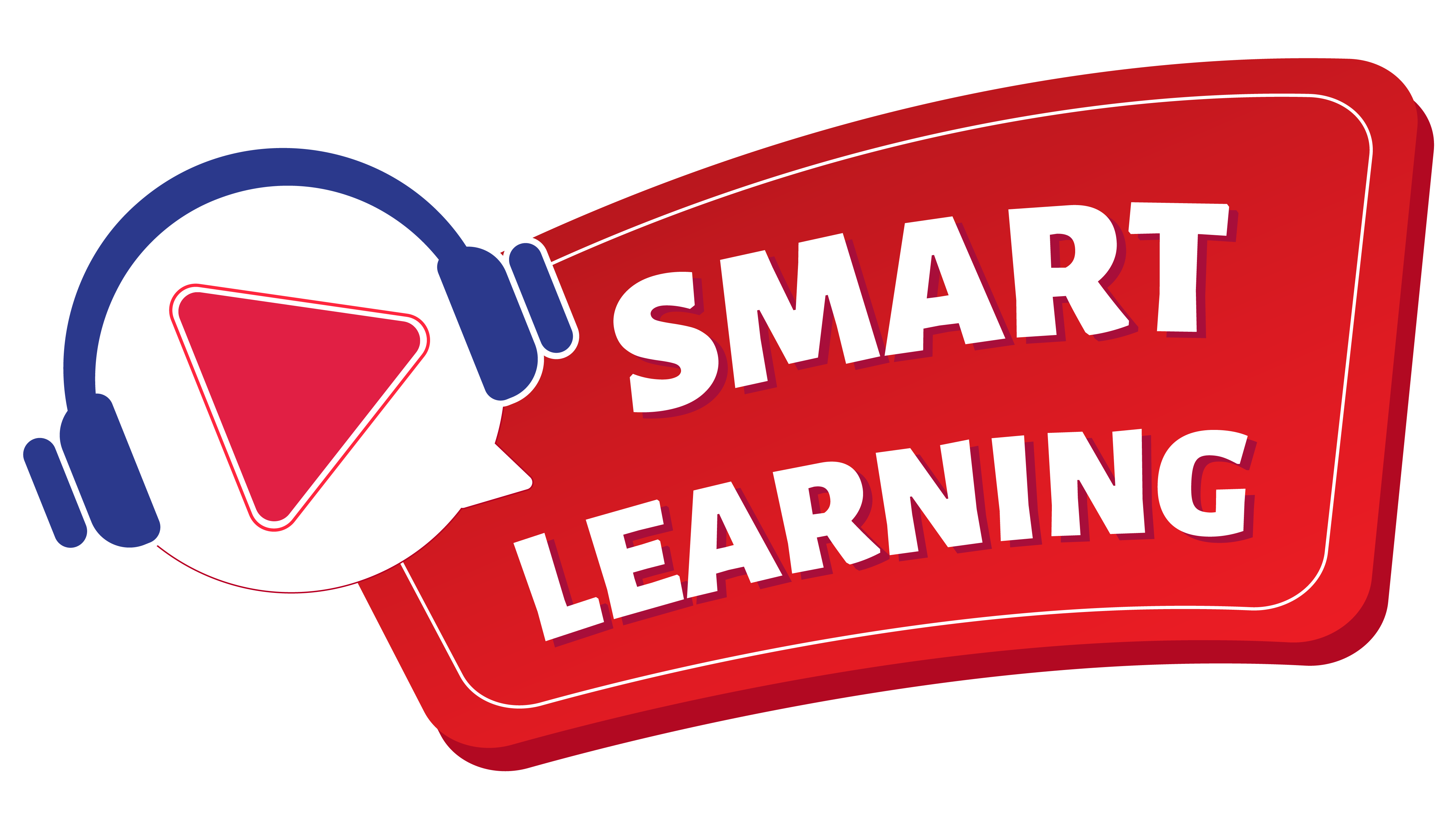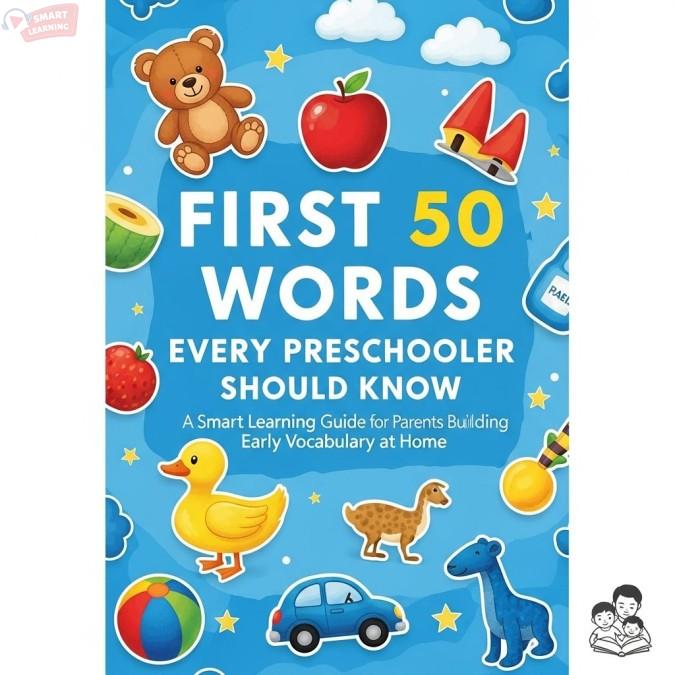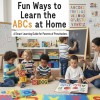🧸 First 50 Words Every Preschooler Should Know (Kids)
A Smart Learning Guide for Parents Building Early Vocabulary at Home
✨ Section 1: Why the First 50 Words Matter
1.1 The Power of Early Vocabulary
The first 50 words a child learns are more than just a list—they’re the foundation of communication. These words:
- Help children express needs and feelings.
- Build confidence in speaking.
- Form the building blocks for sentences.
Research shows that children who develop a strong early vocabulary are more likely to become confident readers and communicators later in life.
1.2 How Vocabulary Growth Works in Preschoolers
Language development in ages 2–5 is rapid:
- Ages 2–3: Children may go from 50 to 200+ words.
- Ages 3–4: Vocabulary can expand to 1,000 words.
- Ages 4–5: Children start using complex sentences.
The first 50 words are the “starter kit” for this growth. They’re usually high-frequency, everyday words that children hear and use often.
1.3 Why Parents Play the Biggest Role
While preschool and daycare help, home is the primary language lab. Parents can:
- Model correct pronunciation.
- Repeat words in different contexts.
- Reinforce learning through play.
🚀 Section 2: The First 50 Words—Categories, Examples, and How to Teach Them
To make learning easier, we’ll group the words into 8 categories. This helps children connect words to real-life experiences.
2.1 Family & People (6 words)
- Mommy, Daddy, baby, friend, teacher, me
Teaching tip: Use family photos and point to each person while saying their name.
2.2 Everyday Objects (8 words)
- Cup, ball, book, chair, bed, car, shoes, bag
Teaching tip: Turn clean-up time into a naming game: “Put the ball in the box.”
2.3 Animals (6 words)
- Dog, cat, bird, fish, cow, duck
Teaching tip: Use animal sounds to make learning fun: “The cow says ‘moo.’”
2.4 Food & Drink (8 words)
- Milk, water, apple, banana, bread, rice, egg, juice
Teaching tip: Let your child help set the table and name each food.
2.5 Actions (6 words)
- Go, come, eat, drink, play, sleep
Teaching tip: Act out each action while saying the word.
2.6 Descriptive Words (5 words)
- Big, small, hot, cold, happy
Teaching tip: Use opposites: “This ball is big, that ball is small.”
2.7 Nature & Outdoors (6 words)
- Sun, moon, star, tree, flower, rain
Teaching tip: Go for a walk and point out each item in real life.
2.8 Important Social Words (5 words)
- Yes, no, please, thank you, bye
Teaching tip: Reinforce manners by prompting: “What do we say when someone gives us a snack?”
📋 Full List of the First 50 Words
Mommy, Daddy, baby, friend, teacher, me, cup, ball, book, chair, bed, car, shoes, bag, dog, cat, bird, fish, cow, duck, milk, water, apple, banana, bread, rice, egg, juice, go, come, eat, drink, play, sleep, big, small, hot, cold, happy, sun, moon, star, tree, flower, rain, yes, no, please, thank you, bye
🌟 Section 3: How to Teach and Reinforce the First 50 Words
3.1 Make It Part of Daily Life
- Morning routine: Name clothes as you dress your child.
- Mealtime: Name foods and drinks.
- Playtime: Use toys to act out verbs.
3.2 Use Multi-Sensory Learning
- Visual: Show pictures or real objects.
- Auditory: Say the word clearly and slowly.
- Kinesthetic: Let your child touch or act out the word.
3.3 Repeat in Different Contexts
Example with “ball”:
- At home: “Kick the ball.”
- At the park: “Throw the ball.”
- In a book: “Look, the boy has a ball.”
3.4 Keep Sessions Short and Fun
- 5–10 minutes at a time.
- Stop before your child loses interest.
- Celebrate small wins.
3.5 Track Progress
Make a simple chart:
- Tick off words your child can say.
- Add a sticker for every 5 new words learned.
3.6 Use Songs and Rhymes
- “Old MacDonald” for animals.
- “Twinkle, Twinkle” for star, moon.
3.7 Read Daily
Choose books with clear pictures and simple text. Point to each object and name it.
3.8 Praise and Encourage
- “You said ‘apple’! Great job!”
- Smile and clap to reinforce effort.
💬 Final Thoughts
The first 50 words are the launchpad for your child’s language journey. By weaving them into everyday life, using multiple senses, and keeping learning playful, you’ll set your preschooler up for success in speaking, reading, and writing.


